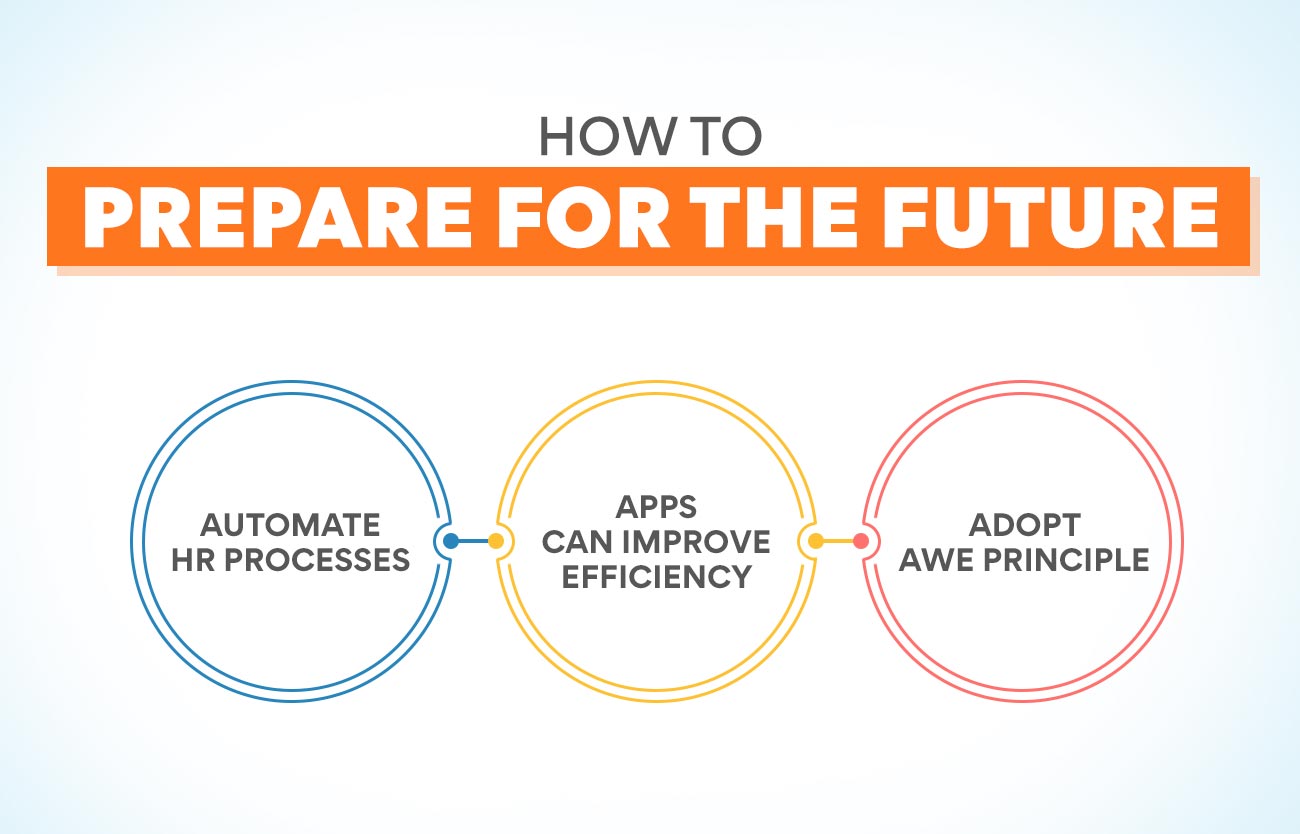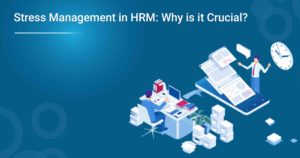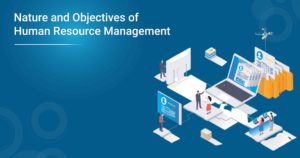Those who aspire to become HR professionals one day will surely know something about the field. If you plan to join the profession, you must have studied what human resource managers do and how they achieve success. But if you want to know about the job and what the future holds for you, it is necessary to understand the evolution of human resource management. Knowing the past will show how the job will develop and what steps one must take to prepare for the future.
Let us first see what human resource management is to benefit those who have not yet decided on what field they want to specialise in. A better understanding of the profession can help to know if you are suitable for it.
Understanding Human Resource Management
In a nutshell, this department deals with everything related to people working in a company. HR professionals ensure optimum staff strength in every business unit. This means that they handle the hiring process. These officials are responsible for searching for the right candidates, interviewing them, and taking the most suitable ones on the company’s rolls. A look at the evolution of human resource management shows that there were individuals employed to hire and manage enslaved people in ancient times.
A human resources manager’s job doesn’t end with employing people. The person must ensure that employees are given the benefits due to them. It is also the job of the HR department to reward those who do their jobs well and contribute to the company’s progress. Human resource managers are responsible for providing a healthy working environment. They must make sure that there is no discrimination of any sort among the employees. Studying the evolution of human resource management clearly shows that due consideration to employee wellbeing was not given in earlier times.
Providing regular training to employees and arming them with skills needed for the future is also part of the HR department’s duties. Another important function is conflict redressal. Disputes among employees and between them and the management are common. The manpower managers have to ensure that such conflicts are resolved quickly, and work progresses smoothly. They must also become the spokespersons of both employees and management at different times. Drawing up employment policies and conveying them to the staff members is also part of their job.
Those who are interested in people and their welfare will find the job of human resource personnel very exciting. But it is crucial to equip oneself with enough knowledge and skills needed to perform the job well. Check out our post-graduate certificate course in human resource management. That could be your gateway to an exciting career.
Evolution Of Human Resource Management
It is not difficult to understand that there was no proper “human resource management” during the times when masters employed slaves to accumulate wealth. But over time, this changed. With mechanisation happening and big factories coming into existence, there was a need for large numbers of workers to be available in one place. The workers had a chance to interact among themselves. The governments also understood that they must take steps to ensure worker safety and prevent exploitation. It could be the beginning of the evolution of human resource management.
Also Read: What is Strategic Human Resource Management? Definition and Examples
During The Industrial Revolution
The industrial revolution started during the middle of the nineteenth century. Large factories were coming up in selected areas in the US and Europe. The use of machines started increasing. A large number of employees were required. People started migrating to cities with good job opportunities and more pay. Many company owners started implementing a basic method of human resource management. This included hiring workers, training them for a job, and managing them. In this stage of the evolution of human resources management, the relationship was still that of master and slave.
Formation Of Trade Unions
The formation of trade unions was a big step in taking care of employee interests. Workers in similar jobs started to form associations to discuss their problems. These later became trade unions that bargained with the management for better working conditions. In the initial stages, the discussions were mainly on child labour, working hours, and conditions. Later the talk between unions and management included other aspects like wages and benefits. The trade unions used various methods like strikes, walkouts, and boycotts to get their demands met. This forced company owners to implement grievance-handling systems.
Feeling Of Social Responsibility
During the initial few years of the twentieth century, many companies started adopting a more human approach to workers. This was called a paternalistic approach, where owners considered workers as children and themselves as their fathers. They opined that fathers should naturally take care of their kids and start providing improved facilities at the workplace. Critics say that this stage in the evolution of human resource management was more due to the pressure of trade unions and owners wanting to avoid the stoppage of work. It was considered more a compulsion than a philosophy aimed at improving worker conditions.
Start Of Scientific Management
Around the same time, Frederick Winslow Taylor conducted various experiments to improve worker productivity. He wrote many papers and is known as the father of scientific management. According to him, it was the responsibility of the management to find ways to get maximum productivity out of a worker. He advocated harmony and suggested that the management must avoid conflicts as much as possible. He strongly recommended the differential piece wage system. He was instrumental in bringing about standardisation and simplification of work.
Importance Of Human Relationships
During the 1920s, experts and researchers in management started taking notice of the human factor in the workplace. Research done in industries between 1924 and 1932 shows the elements that can affect worker productivity. Studies show that social factors had a great influence on the factories. It was observed that group formation and group influence also affected employee productivity. Communication and the qualities of the leader or manager were also found to be important aspects. It was in this period of the evolution of human resource management that human relationships came to have greater importance.
Contribution Of Behavioural Scientists
Behavioural scientists have also contributed greatly to HR management. They proposed a concept of human resources, which is different from the human relations model. Their studies prompted companies to look into the role of managers, the nature of organisations, and the behaviour of employees inside a company. It is at this stage of the evolution of human resource management that discussions about using the full potential of a worker started happening. Studies showed that many employees had a lot of untapped potentials. These researchers insisted that it was the manager’s job to use such unutilised capabilities.
Human Resource Management
As the management of employees in large factories became more complex, industrial relations departments sprang up in many companies. This division was mainly dealing with the workers. When the responsibilities were extended to the supervisory staff, the name was changed to the personnel department. This set of professionals also managed the affairs of the managerial staff. As the competition for hiring competent workers heated up, companies started looking at employees as talent pools. Staff members were considered the source of organisational efficiency. In the late twentieth century, companies started naming the department a human resource department.
Want to excel in the HR domain? Enroll in our post-graduate certificate course for human resource management. Check out our website now to learn course details.
Also Read: What Is Compensation In HRM? Everything You Need To Know
Future Trends In HR Management
We have seen the evolution of human resource management and how things have become more scientific over the years. We must now look at what future trends can be expected in this field. It is predicted that in the near future, HR officials will guide companies through expected disruptions. They will also become more agile and faster in decision-making. Employee performance will be assessed in a more personalised manner. The yearly review system will be replaced by a real-time performance report generation. This will help provide coaching to employees to improve productivity.
There will be more importance on digital expertise among the HR staff. Experts see a shift from looking at revenue per employee to calculating value per employee. There will be increased use of AI in human resource management. It is possible for companies to use this technology to create a more diverse remote workforce. Analytics can be used to determine the age, gender, and ethnicity of the employees to make up a workforce of mixed backgrounds. Everyone knows the benefit of having such a diverse staff makeup. Such decisions can be easily made using modern technology.
As part of the evolution of human resource management, it is likely that most tasks in the department will be broken down into discrete components. In this manner, the company can become agile and lean. Even large companies will become small, like startups. The move has already started with companies looking at agile HR coaches for onboarding employees at multiple locations. There is increasing importance for micro-innovation. This results in product-centric teams, and the HR team will have to gear up to employ such people.
How To Prepare For The Future
As the evolution of human resource management continues, professionals in this field must gear up for future challenges. Let us see how the HR personnel must change to fit into the new setup. Online courses like the post-graduate certificate course in human resource management offered by Edureka continuously upgrade their curriculum to equip participants with the latest skills. Visit our website to know more about this course.
Automate HR Processes
HR teams will have more jobs in their hands as they become a critical element in the growth and development of the firm. They will be required to spend more time coming up with innovative solutions to improve employee productivity and satisfaction. This means that there will be less time for regular work. In such a situation, it is essential for the human resource department to shift from manual work to automation. They must look at modern software that will help speed up regular processes and give them more time to innovate.
Apps Can Improve Efficiency
Manpower managers are expected to collect a lot more details today than before. This will only increase as decisions will depend on data analytics. It is impossible to collect information from everyone in the traditional manner. Using apps for this purpose will greatly reduce the burden on HR personnel. There are various apps that will help improve employee engagement. Applications for salary and leave calculations are also available. Many of these can be integrated with existing software in the company. Adapting apps will help you keep pace with the future evolution of human resource management.
Adopt AWE Principle
HR managers can become more efficient by adopting the AWE principle.
A stands for agile. Making the HR process agile will result in less waste. You must also empower the department staff to focus on value-added work.
W is wonderful. Make work wonderful by being fair in treating the employees. It will turn jobs into more enjoyable activities for all employees. Productivity and employee retention will greatly improve.
E stands for engagement. More employee engagement is needed to motivate employees. As the market becomes more competitive, business houses need every worker to perform to their best abilities. There are software programs that help improve interaction with employees.
Summing Up
The article makes it clear that the evolution of human resource management has greatly benefited both companies and employees. With increasing competition, it is not going to be easy to get the right people for a job. It is all the more important in the future to keep people loyal to the company and ensure they stay there till their retirement. The human resource department is bound to play a more active role in helping companies achieve their objectives. New and existing manpower professionals must equip themselves to face future challenges.
More Information:
Objectives & Nature of Human Resource Management
Key Fundamentals of Human Resource Management
What Is Human Resource Management System?
Difference Between Personnel Management And Human Resource Management




























